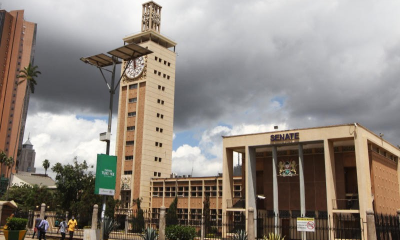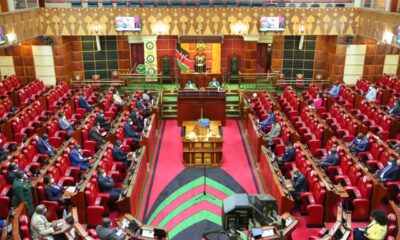

Five departments were found to be overstaffed, eight departments were understaffed, and 10 departments had no staff at all. One department had five employees in positions...


Over 200 staffers in Parliament have been ensnared in a crackdown on holders of fraudulent academic certificates. This extensive operation, initiated by the Parliamentary Service Commission...


The Parliamentary Service Commission (PSC) is on the spot over Sh16.6 million paid to three MPs irregularly. The three lawmakers blew out Sh16.6 million in triple...